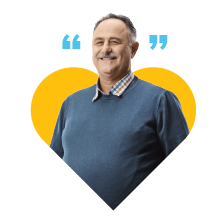
Get Screened for Stroke and Heart Disease Risk

Get Screened for Stroke and Heart Disease Risk
Why Should I Get Screened?

Schedule Now and Save 50%!
Get our risk screening package for $159.
4 Preventative Health Screenings for these Diseases:
Carotid Artery Disease
An ultrasound is performed to screen the carotid arteries (a pair of blood vessels in the neck that deliver blood to your brain) for buildup of fatty plaque. This buildup, called atherosclerosis, is one of the leading causes of stroke.
Abdominal Aortic Aneurysm
An ultrasound is performed to screen the abdominal aorta for the presence of an enlargement or aneurysm. AAA can lead to a ruptured aortic artery, which is a life-threatening medical emergency.
Atrial Fibrillation
A 6-lead electrocardiogram (EKG) is performed by placing sensors on the arms and legs to screen for Atrial Fibrillation. AFib can lead to blood clots, stroke, and heart failure, and other heart-related complications.1
Peripheral Arterial Disease
An Ankle-Brachial Index (ABI) test is performed using blood pressure cuffs on the arms and legs. It is important to screen for PAD because it increases the risk of coronary artery disease, heart attack, or stroke..2
Real-life Customer Testimonials3



1. American Heart Association https://www.heart.org/en/health-topics/atrial-fibrillation These tests cannot detect all risk factors for all conditions, such as and including the presence of coronary artery disease.
2. American Heart Association https://www.heart.org/en/health-topics/peripheral-artery-disease/about-peripheral-artery-disease-pad3. The testimonials reflect real life stories from Life Line Screening customers. Testimonials that include abnormal findings may not reflect the typical experience since most screening results are normal. Photos are actor portrayals and not actual customers.
4. Hackam DG, Karpral MK, et al. Most stroke patients do not get a warning, a Population Based Cohort Study. Sept. 2009. Neurology, 73, 1074-1075.